Knoebel NEWS







Table of Contents
From the Director
Lodging & Real Estate Q&A


Lodging & Real Estate Program Overview
Opportunity Through Scholarship Alumni Updates









From the Director
Lodging & Real Estate Q&A


Lodging & Real Estate Program Overview
Opportunity Through Scholarship Alumni Updates

As we launch fall quarter and welcome a really talented group of first-year students, there is much to share with you – more than we can fit into a single issue. What you will find as you read on are articles focusing on the lodging real estate concentration— an important element of our curriculum— and the scholarships that make it accessible to many of our students.
Our curriculum, which builds on the Daniels College core courses across the business disciplines, includes three—soon four—concentrations: Lodging real estate; restaurants/food and beverage; event sales and management; and the one we will soft launch in the fall, strategic lodging operations. This last concentration will replace the revenue management and analytics concentration for which student interest was waning and from which industry, despite decrying the lack of a talent pipeline in this area, was not hiring. We will migrate interested students to the new concentration beginning this fall and it will become official in the 2023 undergraduate catalogue.
Over the last five years, we have seen growing student interest in the real estate side of the hotel industry and increasing success in placing graduating seniors in analyst roles with developers, REITs, and more. Over 10% of the class of 2022 launched their careers in this area and current seniors interned in analyst roles over the summer. In the pages that follow, you will hear from Amrik Singh, an associate professor who teaches and does research in this area, Dave Johnstone, the chief investment officer of McWhinney—a local developer—who sits on our executive advisory board and leads the teaching team for our senior level hotel investments class, and Jamie Sabatier, former CEO of Two Roads Hospitality and our executive-inresidence.
Further on, you will learn about four alumni benefactors, all of whom have newly endowed scholarships in their names devoted to Fritz Knoebel students. Their contributions and those of all our scholarship donors are critical to our future success. At a time when the competition for students is

especially fierce, in part due to a national decline in interest in hospitality careers among high school students, scholarships are an incredibly important tool for us to attract, yield and retain talented students. Without the ability to provide merit scholarships offers to admitted students and layer need-based awards on top of the merit awards for those with demonstrated need, we would be at a huge disadvantage in recruiting. My deepest thanks go to Tim Benolken, Bob DiSalvio, Michael Morton and to Tom Ricca, his wife Ronnie Bray and all those who chose to honor Tom by contributing to an endowed scholarship in his honor. Tom is recently retired from his design firm and just celebrated 45 years of teaching our design class as a part-time instructor— he so worthy of being honored in this way.
On July 1, I celebrated my 15th anniversary as Fritz Knoebel’s director. I do not know how that is possible; the time has gone so quickly. Our success during my time at Fritz Knoebel would not have been possible without support from our alumni and the industry, and especially the hard work of our entire team. I am so fortunate to work with such a talented, dedicated group of professionals.


My colleague and wife, Cheri Young, and I are on sabbatical this fall to recharge and work on a pair of research projects. We are living in Malta through December and are really enjoying our new surroundings and the change of pace. My thanks to the team for pulling together to cover us in our absence. I will resume work travel after the first of the year and look forward to seeing as many of you as I am able as I make my way around the country to visit with alumni and industry.
I hope that, as we move toward a new year, you and your families are well and that 2023 brings peace, stability, good health and many reasons to celebrate.
David L. Corsun, PhD Director & Associate Professor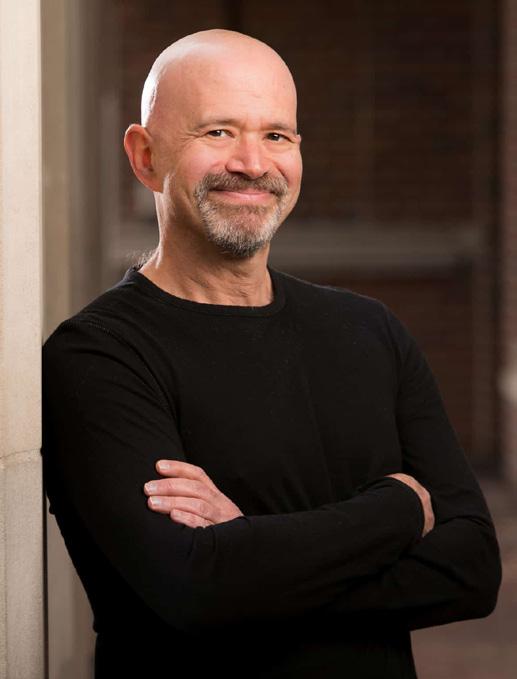





The Lodging and Real Estate Program at Fritz is a critical component of the overall Fritz Knoebel Hospitality Management coursework, providing exposure in valuation, acquisition, operations and management of hotel real estate to our students. The Fritz marketing team sat down with three people who teach in the program for insight into the coursework and its offerings.
Amrik Singh is an assistant professor at the Fritz Knoebel School of Hospitality Management at Daniels. He earned his PhD in hotel, restaurant and institutional management from the Pennsylvania State University in 2004. Singh’s research focuses on the impact of accounting and financial market regulations, financial statement analysis, capital structure, lodging real estate, commercial mortgage-backed securities, and the corporate use of derivatives in the lodging and restaurant industries.
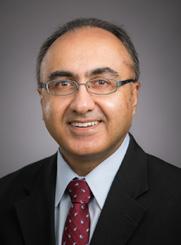
David “Dave” Johnstone (MBA 1987) is the chief investment officer of hospitality for McWhinney, a Daniels alumnus and Fritz board member. He is responsible for acquisitions, developments, asset management and dispositions at McWhinney. Specifically, Johnstone creates and executes business strategies associated with all hospitality-related acquisitions and development.
Jamie Sabatier is the former CEO for Two Roads Hospitality, a preeminent lifestyle, branded management company with over 100 hotels and resorts and approximately 20,000 employees globally. Sabatier led former Denver-based Destination Hotels and Resorts through the successful merger with San Francisco-based Commune Hotels and Resorts and rebranded the company to Two Roads Hospitality in fall 2016. Eventually, he shepherded the sale of Two Roads to Hyatt Hotels & Resorts in late 2018. Sabatier is currently active with AHLA and sits on multiple boards, including Lowe Enterprises. He is also an Executive-in-Residence for Fritz.
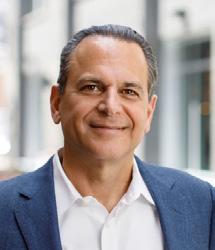 Singh
Johnstone
Singh
Johnstone







Question: Please describe the Lodging Real Estate Program at Fritz—what unique offerings does it have for students?
The lodging real estate program exposes students to the fundamental factors and issues that influence the operation and management, valuation, development, acquisition and disposition of hotel real estate. Students acquire the relevant technical skills and knowledge in valuing and developing hotels. The program consists of a set of three courses, beginning with asset management, followed by lodging valuation, and concluding with lodging development and feasibility studies. These courses provide students with a comprehensive set of unique skills and knowledge that they can bring with them to any lodging real estate firm after graduation.
I’ll also add that the lodging development and feasibility course will be bumped up to 4 credit hours instead of the current 2 credit hours. Starting in 2023, students will be able to earn a certificate in advanced hotel and tourism analytics upon successfully passing an exam in the lodging development and feasibility course.

The program offers students an opportunity to learn about the various aspects of the real estate and ownership side of hospitality properties. Most students tend to choose a path that focuses on the operations side of hospitality, but our class exposes them to other potential paths they can consider if they decide that operations is not for them.

Question: How can real estate contribute to a holistic understanding of the hospitality industry?
Hospitality is both an operating business and a real estate investment. If students think they may desire, either now or in the future, to be an owner of a hotel or restaurant, they would benefit greatly from taking the class.
A keen understanding of real estate is fundamental to the hospitality industry—not only hotel real estate, but also, more broadly mixeduse and related industry is the foundation for all hotels. One must understand what the “highest and best” value is for a piece of land to build on or an existing building to renovate to be able to know whether a hotel or a mixed-use project with a hotel makes the most sense. While hotels represent the most operating intensive segment of the traditional real estate industry (compared to office, industrial, retail, etc.) the real estate decisions can make or break whether a hotel is successful or not.
Question: What course(s) do you teach and how do they contribute to the lodging real estate program?
I teach two of the courses in the program, lodging valuation and lodging development and feasibility. The unique contribution of these courses allows students to apply what they learn to a realworld setting. Students apply the same set of skills and knowledge that are applied by many analysts working in hotel consulting and brokerage firms in the Denver area such as HVS, CBRE, HREC, etc. For example, in the valuation course, students are provided with an actual and recent hotel transaction without disclosure of the transaction price. Students are asked to create a
Broker’s Opinion of Value (BOV) to value the property using the sales comparison and income approaches in valuing a hotel.
The course I teach can best be described as Hotel Real Estate 101 from an owner’s perspective versus an operator’s perspective. The course brings in 10-12 alumni that are guest speakers in various aspects of the real estate side of hospitality and they talk about their current role in the real estate side, their career paths and how they got into the real estate side of the business. Nearly all alumni who speak in our class started out in operations and wish they had been given the opportunity to take a lodging real estate course as students.
Question: What kinds of careers can be found in the hospitality industry while focusing on real estate?

Students interested in this area usually start off as analysts with firms involved in lodging real estate acquisition, development and valuation. These firms include REITs, brokerage firms, consulting firms, asset management, developers and major hotel brands, among others. Most students usually spend about two to three years acquiring the skills and knowledge as analysts before being promoted to middle and senior management positions either with the same firm or a different firm.
Some careers are investment analyst, hotel development, hotel asset manager, hotel financing specialist for a bank or lending institution, hotel sales broker, hotel debt broker, hotel developer, hotel equity fund manager and many more.


There are so many great careers to be found in the hospitality industry while focusing on real estate, including being a developer (conceiving and bringing a hotel project to life either as a new build or renovation), an architect (designing the overall plan and components of the hotel), a designer (designing the interior components of the hotel), a general contractor (actually building the hotel), an owner of hotels, either on the investment side (buying and selling hotels) or on the asset management side (enhancing value of hotel through multiple avenues), or being a lender to hotel owners and developers.
Question: What would you say to a potential student who may be considering the Lodging Real Estate Program at Fritz?
I would say give it a try by taking the asset management course, in which the student will be exposed to all the different facets of lodging real estate through various guest speakers from the development, lending, legal, acquisition and brokerage sides of the business. The goal of that course is to get students interested in lodging real estate.
Take a lodging real estate class your junior year to learn about the possibilities and perhaps get an internship in the field. This can help you determine if the lodging real estate program is right for you.

Expose yourself to as many mentors, professors, fellow students, recent alums and classes as you can, both inside of real estate and in some other related disciplines. As mentioned above, there are so many different paths you can take on the lodging real estate side that the only way to know what you will like and be good at is to follow this approach as well as use different internship opportunities to see how those paths work and feel in the real world.
Question: How does Fritz prepare students to enter hospitality real estate?
We have a great advisory board composed of some top hospitality real estate professionals who provide valuable advice and guidance on what we should be teaching; the courses we offer are the result of that consultation. What also makes us different is being a small boutique program that offers student a personalized, guided experience from the time they enter the program to the time they leave. We are one of a handful of schools that have the expertise to provide hotel real estate courses. The result is we now have more students interested in real estate than ever before. Moreover, we’ve developed a reputation as being a top teaching school for lodging real estate and, as a result, real. estate firms often recruit our students for jobs post-graduation.


Question: What changes do you see coming to the industry in the next 10-15 years?
The effects of the pandemic have yet to be fully determined, including the return to office working. As mental health becomes more important, the lines between business travel and leisure travel will become blurrier. Experiences and lifestyle design were already becoming more important pre-pandemic and I believe they will be even more important going forward.
In the next 10-15 years there will continue to be an emphasis on local and unique experiences as people travel. The globalization of travel, not just to major current tourist destinations, but to more remote and authentic locales will explode, especially as the middle class grows in China and India. Technology innovations will also greatly impact housekeeping, front desk, engineering, food and beverage, and almost every element of the hotel experience. With the continued focus on technology, innovation will, paradoxically (or maybe not so paradoxically), create an even stronger customer desire for hotels and hospitality to provide opportunities for connections, relationships and purpose.
Question: How would you sum up your experience in hospitality? Are there any favorite moments or key takeaways you want to share?
My favorite moments, specifically related to our lodging real estate courses, often occur with the BOV project in our valuation course; I love when a student’s valuation of a hotel matches the transaction price! I also love hearing about my former students getting promoted. We have numerous alumni in the lodging real estate industry and it’s exciting to see former students grow in their field.
I truly enjoy bringing in alumni for my course. It’s exciting to see a student who “gets it” and wants to be on the real estate side, and our alumni are a key part of that experience. Our alumni come in and speak about their careers, their experience and how they ended up in their current positions. The stories are inspiring, and it’s great to know that we, at Fritz, do our best to help students land jobs and build
Hospitality is, by far, the best world in the industry, and it all starts with how positive the typical


 Singh
Johnstone
Johnstone
Sabatier
Singh
Johnstone
Johnstone
Sabatier
Hotels are a unique asset class of commercial real estate investment properties, consisting of an operation housed in real estate. Lodging is the riskiest of all commercial real estate asset classes because of its room rate pricing, which fluctuates daily, unlike other property types, such as office spaces, that are secured by long-term leases. This makes hotels the most complex businesses to operate, especially compared to other major property types such as office, retail, multifamily or industrial.

Fritz has long excelled in teaching traditional hospitality avenues such as sales, marketing, and food and beverage. Most students are familiar with these
operations in the hotel business; the bulk of companies hire our students to manage these types of operations. Fritz’s concentration in lodging real estate is less known but has grown in importance over the past decade. More than two-thirds of hotels in the U.S. are owned and/or managed by firms involved in real estate.
The concentration combines courses taught in Fritz with those in the Burns School of Real Estate and Construction Management, including:
Hotel Investments, bringing in guest speakers—from lenders to brokers to developers and asset managers—to share their expertise
Lodging Valuation, which details various methods used in valuing existing hotels
Hotel Feasibility and Development, where students learn the methodology involved in conducting a feasibility study for new hotels. Upon the completion of this course, students may also choose to test for the Certificate in Advanced Hospitality and Tourism Analytics (CAHTA), a globally recognized achievement endorsed by multiple lodging industry groups.

This comprehensive concentration is a unique aspect of the education Fritz provides, giving students the knowledge they need to be successful and build their careers in lodging real estate.
If you’re interested in learning more about our lodging real estate program or getting involved through sponsorship or guest speaking, please contact us us at 303-871-4427

The cost of higher education continues to escalate, the U.S. college-aged population is set to shrink significantly in 2025 and COVID accelerated the declining interest among young people in hospitality careers. Fritz Knoebel is, therefore, competing for students in a highly challenging and competitive market.

Our ability to attract and enroll students to DU's hospitality program is increasingly dependent on our ability to provide scholarship funding. Students are applying to more universities than ever, and families are pitting universities against one another for the most attractive funding package. We are fortunate that Fritz Knoebel’s scholarship resources supplement the University’s resources, but they are more than just the icing on the cake. They provide Fritz students with merit scholarships and truly critical need-based awards.
Last academic year was the fourth in a row that our juniors and seniors received scholarship support sufficient to eliminate their student loans. This level of support is possible only because of the generosity of our scholarship donors. Over the last 15 years, Fritz Knoebel has gone from six named endowed scholarship funds to 31. During the past academic year, we added four new endowed scholarships. I am pleased and proud to share information about them and the donors.
DavidDU alumnus Tim Benolken (BSBA 1981) realized he wanted to pursue a career in hotels and restaurants after working part-time as a dishwasher in New Jersey in his youth. As a DU student, Benolken focused intensely on his grades and continued to work to put himself through school. He enjoyed a very successful career spanning several roles in the industry—from busboy to chef to general manager to director of food and beverage to director of housekeeping. Recently, Benolken retired from a 30-year career with Hilton Hotels as the vice president of operations for the western U.S.
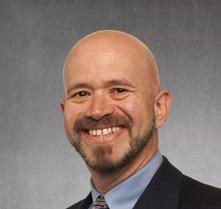
After many years of supporting DU, Benolken and his wife, Janice, created the Benolken Family Endowed Scholarship Fund to support hospitality students in perpetuity. “I received a great education at DU,” Benolken says. “We are happy to give back to deserving students and a program that helped build the foundation for my career.”
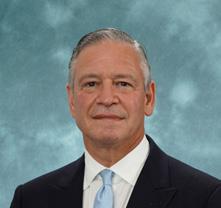
The DeSalvio Family Endowed Scholarship was established in 2021 by Robert “Bob” DeSalvio (BSBA 1978). It supports hospitality students based on demonstrated financial need and/or academic merit.
“I am proud to support the students at the University of Denver with this scholarship,” DeSalvio says. “The time I spent at DU helped shape my career and personal life and helped me understand the true meaning of the hospitality business. Providing resources to the future leaders of our industry gives me great joy, and I wish nothing but the best for any future scholarship recipients.”
Michael A. Morton (BSBA 1987) recently made an endowed scholarship gift to benefit hospitality students, beginning in fall 2022. Through the Michael A. Morton Endowed Scholarship Fund, Morton aims to give future generations of students the dynamic experiences of a DU education like he had.

“I’ve always told my children that DU’s programs and education are amazing, and the freedom in college to find independence is so important,” Morton says. “That’s the opportunity I want to give to students. I’ve always wanted to give back. I hope this will help ease the pressure for some students, so they can find lifechanging experiences like what I had.”
Morton’s gift supports students based on demonstrated financial need. Because the scholarship is endowed, it will benefit DU students in perpetuity, giving generations of students the opportunity to learn and prepare for successful careers. “My time at DU was four of the best years of my life,” Morton says. “And I hope for the same for the students receiving my scholarship.”
Created in 2022, the Thomas D. Ricca Endowed Scholarship Fund honors adjunct faculty member Tom Ricca’s (MBA 1969) distinguished career in hospitality design and his longtime commitment to Knoebel students’ education in this area.

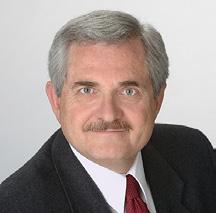
Contributions from donors include Ricca and his wife, Ronnie Bray, as well as many of Ricca’s colleagues, family and friends.
“After a half-century of teaching, I am excited that this scholarship might be able to help some future students to be able to afford the wonderful education that DU provides,” Ricca says. “It is a legacy I am really proud of, and I am thankful for all the people who have contributed.”
This fund set the record for the fastest multi-donor endowed scholarship to $100,000 in gifts and commitments. Ricca is a beloved and respected professor and, in less than a month of fundraising, people came together to fund this endowment.
2013
Hannah Loudin (BSBA 2013) is the director of residences at The Tampa EDITION, a luxury hotel in the Water Street Tampa neighborhood.
2014
Sophie Amster (BSBA 2014) is now the event program manager at Relativity Space, an aviation and aerospace component manufacturer focused on building humanity’s future in space.
2016
Andrew Lewis (BSBA 2016) was recently promoted to the assistant director of operations, rooms, for the Park Hyatt in New York City.
2018
Christina Brazen (BSBA 2018) has joined Vail Resorts as a revenue manager.
2019
Kelly Anderson (BSBA 2019) has taken a position as the corporate engagement manager for Domaine Serene Vineyards & Winery. Domain Serene Vineyards produces world-class pinot noir and chardonnay in Dayton, Oregon, one of the finest regions in the world for these wines.
2020
Sophia Burge (BSBA 2020) has been promoted as the group sales manager and conference services manager at The Rosewood Sand Hill, a luxury hotel set in the heart of Silicon Valley.
Blaine Farrell (BSBA 2020) is an investment analyst at Sage Hospitality Group.
Teresa Wechsler (BSBA 2020) is now the senior investment and asset management analyst at The Little Nell Hotel Group in Aspen, Colorado.
Jessica Wheeler (BSBA 2020) is an event producer at Oren Co., one of the world’s leading luxury experience firms.
2021
Casey Arakaki (BSBA 2021) is the assistant area manager at AvantStay in Lahaina, Hawaii.
Trevor Rumsey (BSBA 2021) was promoted to assistant general manager at The Sea Pines Resort, located on Hilton Head Island, South Carolina.



2044 E. Evans Ave. Denver, CO 80208-8921
